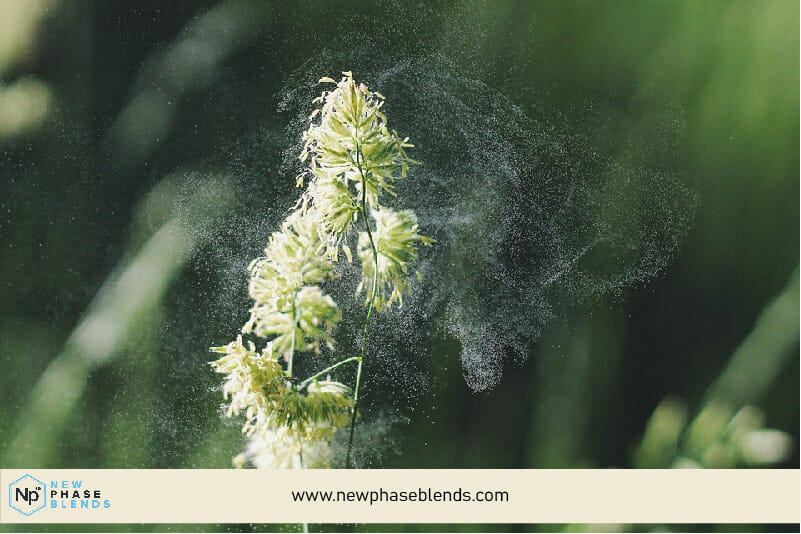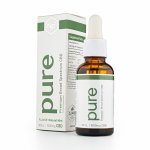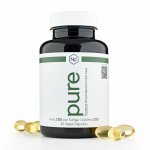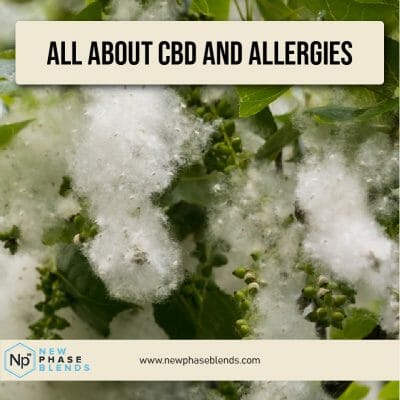If you’re among the millions of people who dread allergy season, you’ve likely explored countless remedies to find relief from sneezing, congestion, and watery eyes. While traditional antihistamines offer temporary solutions, many individuals are now turning to CBD products and allergies research to explore whether this natural compound might provide a more comprehensive approach to managing their symptoms.
The relationship between CBD and allergies represents an emerging area of wellness research that combines our growing understanding of the endocannabinoid system with the body’s immune response. In this comprehensive guide, you’ll discover how CBD may influence allergy symptoms, what current research reveals about its potential benefits, and practical considerations for incorporating CBD into your allergy management routine.
Our team has spent years researching natural wellness solutions and working with individuals seeking alternatives to conventional allergy treatments. Through extensive research and real-world applications, we’ve compiled this evidence-based resource to help you make informed decisions about using CBD for allergy relief. Whether you’re dealing with seasonal allergies, food sensitivities, or environmental triggers, this guide will provide you with the knowledge needed to understand how CBD and allergies intersect in the context of natural wellness.
Understanding Allergies and Their Impact on Daily Life
Allergies occur when your immune system overreacts to substances that are typically harmless to most people. These substances, called allergens, can include pollen, dust mites, pet dander, certain foods, or environmental chemicals. When exposed to these triggers, your body releases histamine and other inflammatory compounds, leading to the familiar symptoms of sneezing, congestion, itchy eyes, and skin reactions.
The prevalence of allergies has increased significantly over the past few decades, with over 50 million Americans experiencing various types of allergic reactions annually. This rise has prompted many individuals to seek natural alternatives to traditional medications, particularly those concerned about the side effects of long-term antihistamine use.

Understanding how allergies develop and progress is crucial for exploring how CBD might influence this process. The immune system’s inflammatory response is at the heart of allergic reactions, and this is where CBD’s potential anti-inflammatory properties become particularly relevant to allergy management.
How CBD Works in the Body’s Immune System
CBD, or cannabidiol, interacts with the body’s endocannabinoid system, a complex network of receptors and compounds that help regulate various physiological processes, including immune function. The endocannabinoid system plays a crucial role in maintaining homeostasis, or balance, within the body’s systems.
Research suggests that CBD may influence immune function through several mechanisms. It appears to modulate the activity of immune cells, potentially reducing excessive inflammatory responses while supporting the body’s natural ability to distinguish between harmful and harmless substances. This regulatory function is particularly significant when considering how CBD and allergies might interact.
The compound’s interaction with CB2 receptors, which are primarily found in immune tissues, may help explain why some individuals report reduced allergy symptoms when using CBD products. However, it’s important to note that research is still evolving, and individual responses can vary significantly based on factors such as dosage, product quality, and personal physiology.

Current Research on CBD and Allergy Relief
Scientific investigation into CBD’s potential for allergy relief is still in its early stages, but preliminary research offers promising insights. Studies examining CBD’s anti-inflammatory properties have shown that the compound may help reduce the production of inflammatory mediators that contribute to allergic reactions.
A 2019 study published in the European Journal of Pain examined CBD’s effects on inflammatory responses and found that it demonstrated significant anti-inflammatory activity in laboratory settings. While this research wasn’t specifically focused on allergies, the findings suggest potential applications for managing inflammatory conditions, including allergic responses.
Additional research has explored CBD’s effects on mast cells, the immune cells responsible for releasing histamine during allergic reactions. Some studies indicate that CBD may help stabilize these cells, potentially reducing the intensity of allergic responses. However, most of this research has been conducted in laboratory settings or animal models, and more human clinical trials are needed to establish definitive conclusions.
Can CBD Reduce Sneezing and Other Allergy Symptoms?
The question of whether CBD can reduce sneezing and allergies symptoms is complex and depends on multiple factors. While anecdotal reports from CBD users suggest potential benefits for allergy management, scientific evidence remains limited and primarily theoretical.
CBD’s potential to address sneezing and other allergy symptoms may stem from its anti-inflammatory properties and its interaction with the endocannabinoid system. The compound may help modulate the immune response that triggers allergy symptoms, potentially reducing the severity of reactions to environmental allergens.
Some individuals report that regular CBD use helps them manage seasonal allergy symptoms more effectively than they experienced with traditional treatments alone. These reports often mention reduced congestion, less frequent sneezing episodes, and improved overall comfort during high-pollen periods. However, these experiences are highly individual and may not be representative of universal outcomes.
It’s crucial to understand that CBD is not a cure for allergies, nor should it be considered a replacement for proven allergy treatments without proper medical guidance. The compound may serve as a complementary approach to traditional allergy management strategies, but individual results can vary significantly.
Types of CBD Products for Allergy Management
When considering CBD for allergy relief, understanding the different product types available can help you make informed choices. Each form of CBD offers distinct advantages and considerations for allergy management.
CBD oils and tinctures represent the most popular choice for individuals exploring CBD and allergies relief. These products allow for precise dosing and typically provide faster onset of effects compared to other forms. The sublingual administration method enables the compound to enter the bloodstream relatively quickly, which may be beneficial for managing acute allergy symptoms.
Type: Pure CBD Oil
CBD: 1000mg or 2000mg
Features: Free shipping, money back guarantee on all products
Topical CBD products, including creams and balms, may be particularly useful for addressing skin-related allergy symptoms such as eczema or contact dermatitis. These products allow for targeted application without systemic effects, making them suitable for individuals who prefer localized treatment approaches.

CBD capsules and edibles offer convenience and consistent dosing but typically take longer to produce effects due to the digestive process. These products may be more suitable for individuals seeking long-term, preventive support rather than immediate symptom relief.
Type: Pure CBD Softgel Capsules (Vegan)
CBD: 40mg per Capsule
Features: Free Shipping, Money Back Guarantee
Dosage Considerations and Safety Guidelines
Determining appropriate CBD dosage for allergy management requires careful consideration of multiple factors, including body weight, severity of symptoms, and individual sensitivity to the compound. Unlike traditional medications with standardized dosing guidelines, CBD dosing remains largely individualized and experimental.
Most experts recommend starting with low doses and gradually increasing until desired effects are achieved. For allergy management, this might mean beginning with 10-20 mg daily and adjusting based on symptom response over several weeks. This approach, known as “start low and go slow,” helps minimize potential side effects while allowing you to find your optimal dosage range.
It’s essential to choose high-quality CBD products from reputable manufacturers who provide third-party laboratory testing results. These tests verify the product’s CBD content and confirm the absence of harmful contaminants such as pesticides, heavy metals, or residual solvents.
Before incorporating CBD into your allergy management routine, consult with healthcare providers, particularly if you’re taking other medications or have underlying health conditions. CBD can interact with certain medications, and professional guidance ensures safe and effective use.
Potential Side Effects and Interactions
While CBD is generally well-tolerated by most individuals, understanding potential side effects and interactions is crucial for safe use. Common side effects may include fatigue, changes in appetite, digestive issues, and dry mouth. These effects are typically mild and often diminish as your body adjusts to regular CBD use.
CBD can interact with certain medications by affecting how your liver processes these drugs. This interaction is particularly important for individuals taking blood thinners, seizure medications, or other prescription drugs. The compound may enhance or reduce the effectiveness of these medications, potentially leading to unwanted effects.
Some individuals may experience allergic reactions to CBD products themselves, particularly those derived from hemp or containing additional ingredients. If you have known sensitivities to cannabis plants or specific carrier oils, careful product selection and initial testing with small amounts is advisable.
Integrating CBD with Traditional Allergy Treatments
Rather than replacing conventional allergy treatments, CBD may work best as part of a comprehensive allergy management strategy. This integrated approach allows you to potentially enhance the effectiveness of proven treatments while exploring natural alternatives.
Many individuals successfully combine CBD with traditional antihistamines, nasal corticosteroids, or allergy shots under medical supervision. This combination approach may allow for reduced reliance on conventional medications while maintaining effective symptom control.
Environmental modifications remain crucial regardless of your treatment approach. Regular cleaning to reduce dust and allergens, using air purifiers, and avoiding known triggers continue to be fundamental aspects of allergy management that complement any CBD regimen.
Lifestyle Factors That Enhance CBD’s Effectiveness
Several lifestyle factors may influence how effectively CBD works for allergy management. Stress reduction techniques, including meditation, regular exercise, and adequate sleep, can support overall immune function and potentially enhance CBD’s beneficial effects.
Dietary considerations also play a role in allergy management and CBD effectiveness. Anti-inflammatory foods such as fatty fish, leafy greens, and berries may complement CBD’s anti-inflammatory properties. Conversely, processed foods and excessive sugar intake may contribute to inflammation and counteract potential benefits.
Timing of CBD administration can impact its effectiveness for allergy symptoms. Some individuals find that taking CBD consistently throughout allergy season provides better results than intermittent use, while others prefer to increase their dosage during high-pollen periods.
Quality Considerations When Choosing CBD Products
The CBD market’s rapid growth has led to significant variation in product quality, making informed selection crucial for effectiveness and safety. Look for products that provide comprehensive third-party laboratory testing, including analysis for CBD content, other cannabinoids, and potential contaminants.

Full-spectrum CBD products contain additional compounds found in hemp plants, including other cannabinoids and terpenes. Some research suggests these compounds may work synergistically to enhance CBD’s effects, a phenomenon known as the “entourage effect.” However, full-spectrum products contain trace amounts of THC, which may be a consideration for some users.
CBD isolate products contain pure CBD without other hemp compounds. These products may be preferable for individuals who want to avoid THC entirely or who may be sensitive to other plant compounds.
Making Informed Decisions About CBD and Allergies
The relationship between CBD and allergies represents an evolving area of research with promising preliminary findings but limited definitive conclusions. While some individuals report significant benefits from incorporating CBD into their allergy management routines, others may experience minimal effects or prefer traditional treatments.

Your decision to explore CBD for allergy relief should be based on careful consideration of current research, consultation with healthcare providers, and realistic expectations about potential outcomes. CBD may offer valuable support for some individuals, but it’s not a universal solution for allergy management.
The most effective approach to allergy management often involves multiple strategies, including environmental controls, appropriate medical treatments, lifestyle modifications, and potentially complementary approaches like CBD. By working with healthcare providers and staying informed about emerging research, you can develop a comprehensive strategy that addresses your specific allergy concerns.
As research continues to evolve, our understanding of how CBD and allergies interact will likely become more refined, potentially leading to more targeted and effective applications. Until then, informed exploration under professional guidance represents the most prudent approach to incorporating CBD into your allergy management strategy.
Remember that managing allergies effectively requires patience and often involves trying different approaches to find what works best for your individual situation. Whether CBD becomes part of your allergy management toolkit or you choose to focus on other proven treatments, the goal remains the same: achieving comfortable, symptom-free living throughout allergy season and beyond.













